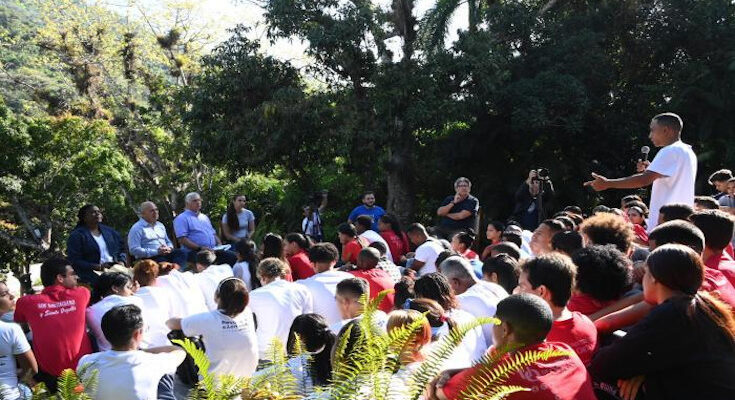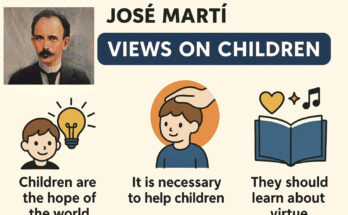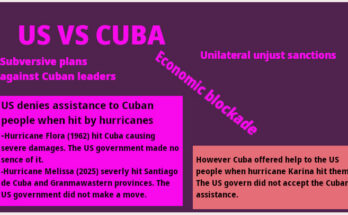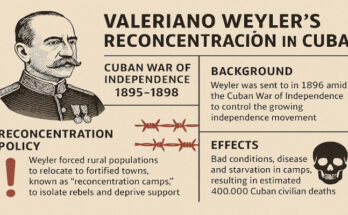SAN LORENZO, Tercer Frente, Santiago de Cuba – The fact that Carlos Manuel de Céspedes, on February 27, 1874, had gone out to fight with his last bullets; that he had fallen, did not constitute, as Fidel would say, a defeat, it was an act of coherence with what he had preached throughout his life.
The reflection was shared by the First Secretary of the Central Committee of the Party and President of the Republic, Miguel Díaz-Canel Bermúdez, with young people from Santiago de Cuba and Granma, who went up to these mountains of the Sierra Maestra, in the municipality of Tercer Frente, to commemorate the 151st anniversary of the fall in combat of the Father of the Homeland.
Céspedes, as a deposed president, recalled Díaz-Canel, came here with simplicity, with modesty, with pain for what had happened, but with patriotic feeling; here he became just another neighbor, and when a freed slave came to complain to him and called him “master”, “president”, he answered her: I am not your master, I am not your president, I am your brother.
The Head of State took up again the episode that minutes before had shelled out in front of the young people, on Thursday morning, the prominent historian Rafael Acosta De Arriba, whose book, The Broken Silences of San Lorenzo, was delivered to a group of them who were granted, on the day, the status of Party or UJC militants.
De Arriba, a deep Céspedes fan according to Díaz-Canel, said that San Lorenzo is a sacred place of the Homeland, and shared reflections and anecdotes about the last days of Céspedes in this place where there were seven little houses, and where he taught to read and write to the children of the estate.
Accompanied by the member of the Political Bureau and Secretary of Organization of the Central Committee, Roberto Morales Ojeda; the first secretary of the provincial committee of the Party in Santiago de Cuba, Beatriz Jhonson Urrutia, and the first secretary of the National Committee of the UJC, Meyvis Estévez Echevarría, the Cuban President insisted on the relevance of activities such as these.
He described as very significant that youth groups feel the need to get closer to history through camps, visits and other initiatives that should be multiplied with proposals that come from themselves. These, he stated, are more contemporary experiences, closer to the communication codes that the new generations have today.
YOUNG WORD
Like the meeting he had earlier in the week in Baire with the young people, this one also served for the new generations to share ideas, make suggestions and set goals.
Israel, professor of Law at the Universidad de Oriente, praised the intense legislative activity that has been developed in the country in the last years. He pointed out that Cuba today is a different country; but he called, among other suggestions, to advance more in this process, because he considers that “it is not enough to approve new laws, but it is necessary to follow up on their application”.
José Salvador, secretary of the UJC in the IPVCE in Granma, spoke about the work of the organization in the center, which has allowed the creation of a base committee per brigade of the FEEM, as well as that young people join food production, carry out activities to be in contact with history and develop initiatives.
Yamaili, president of the FEU at the Universidad de Oriente, reflected, among other issues, on the hiring of young students in the non-state sector, including places where the labor code is not respected, and they are forced to work long hours, and may be victims of discrimination and sexist practices.
David delivered a message from the youth of the Revolutionary Armed Forces (FAR). He stressed that the FAR is a school of values, of historical traditions of struggle of the Cuban people.
Adriano, leader of the UJC in Songo-La Maya, commented that when asked by many about what will be the future of our youth, the answer is that we have to build that future with our participation, which is an example -he explained-, the policy for children, adolescents and youth, which is being built with the protagonist participation of the new generations.
TRIBUTE TO OUR HISTORY
The Cuban President discussed these and other proposals with the young people and insisted that in all of them it is essential to learn and worship our history.
Peoples who forget their history disappear, he said. That is why, he emphasized, “we are here today; here there is no forgetting; we are in San Lorenzo so that it is not forgotten that he was the first president of the Republic in Arms, so that we do not forget why he is the Father of the Nation”.
And here, in San Lorenzo, as historian Rafael Acosta De Arriba has said, “here there was no death, here what there was was seed, seed to germinate later in the whole history of the Revolution”.
So, we have to see how we honor Carlos Manuel de Céspedes every day, and it has to be every day if we want to perfect the socialist society we have proposed, he added.
Nor can we forget, he added, that Carlos Manuel de Céspedes was a very cultured man, because, also from the culture, explained the Head of State to young people, we have to face this battle to safeguard the Revolution.
(Taken from Granma)




